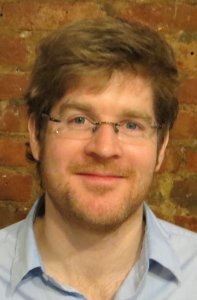Presented By: Institute for Social Research
Using an Online Sample to Learn about an Offline Population
Dennis Feehan (UC Berkeley)

A PSC Brown Bag Seminar: Big Data in Population Science - Mini-Series.
Online data sources offer tremendous promise to demography and other social sciences, but researchers worry that the group of people who are represented in online datasets can be different from the general population. We show that by sampling and anonymously interviewing people who are online, researchers can learn about both people who are online and people who are offline. Our approach is based on the insight that people everywhere are connected through in-person social networks, such as kin, friendship, and contact networks. We illustrate how this insight can be used to derive an estimator for tracking the digital divide in access to the internet, an increasingly important dimension of population inequality in the modern world. We conducted a large-scale empirical test of our approach, using an online sample to estimate internet adoption in five countries (n≈15,000). Our test embedded a randomized experiment whose results can help design future studies. Our approach could be adapted to many other settings, offering one way to overcome some of the major challenges facing demographers in the information age.
Related Material:
Personal website
BIO:
Professor Feehan's research interests lie at the intersection of networks, demography, and quantitative methodology. He is an Assistant Professor of Demography at the University of California, Berkeley. In the summer of 2015, he finished his Ph.D. at Princeton’s Office of Population Research, and spent the fall of 2015 as a Research Scientist at Facebook.
PSC Brown Bag seminars highlight recent research in population studies and serve as a focal point for building our research community.
Online data sources offer tremendous promise to demography and other social sciences, but researchers worry that the group of people who are represented in online datasets can be different from the general population. We show that by sampling and anonymously interviewing people who are online, researchers can learn about both people who are online and people who are offline. Our approach is based on the insight that people everywhere are connected through in-person social networks, such as kin, friendship, and contact networks. We illustrate how this insight can be used to derive an estimator for tracking the digital divide in access to the internet, an increasingly important dimension of population inequality in the modern world. We conducted a large-scale empirical test of our approach, using an online sample to estimate internet adoption in five countries (n≈15,000). Our test embedded a randomized experiment whose results can help design future studies. Our approach could be adapted to many other settings, offering one way to overcome some of the major challenges facing demographers in the information age.
Related Material:
Personal website
BIO:
Professor Feehan's research interests lie at the intersection of networks, demography, and quantitative methodology. He is an Assistant Professor of Demography at the University of California, Berkeley. In the summer of 2015, he finished his Ph.D. at Princeton’s Office of Population Research, and spent the fall of 2015 as a Research Scientist at Facebook.
PSC Brown Bag seminars highlight recent research in population studies and serve as a focal point for building our research community.